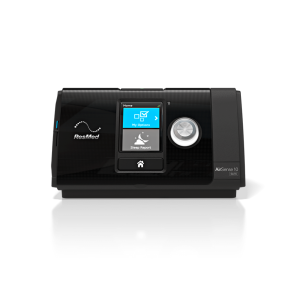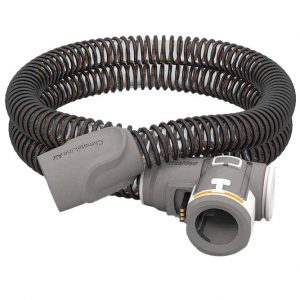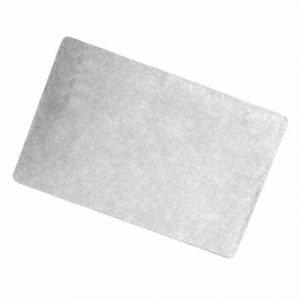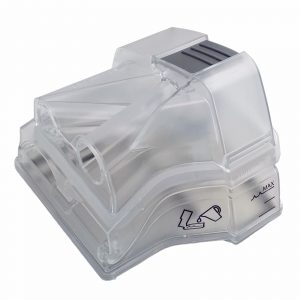Fact Checked
Intus Healthcare’s writers, customer service team, and sleep experts review and ensure this information is accurate.
Last updated on June 20th, 2023 at 10:56 am
Summer CPAP Humidifier Use
Generally, most CPAP users don’t need a humidifier during the summer because the air is much warmer than in the winter.
Your body needs water when you breathe, and the average person loses between 0.5 to 1 litre of water per day just by breathing
On average, air contains around 5% water vapour.
If you are a mouth breather, ensure you use a full face mask to prevent air leaks and get the most from your treatment. Escaping air uses up a lot of humidity, which will, in turn, cause more issues.
If you are travelling during the summertime, you can use an alternative to distilled water in your humidifier water chamber. Consider waterless humidification or boiling tap water and allowing it to cool before use. This is a great way to avoid trying to find or carry with you distilled water while travelling.
CPAP humidifier settings in the summer
Here are a few examples of when a CPAP machine humidifier may be needed in the summer:
- If you feel it’s cooler outside than it is inside. Low humidity can also make it seem much cooler than it actually is, which indicates that you will need to use the humidifier.
- This may be unlikely in the UK, but If you’re running the AC (air conditioning) in your home, the AC makes the air in your bedroom cooler and dry. Therefore, a humidifier, in this instance, would increase comfort.
- Maybe your body requires more moisture. CPAP users’ personal needs and bodies can be very different. It helps alleviate dryness or congestion, regardless of the season. If you find it beneficial and comfortable to use a humidifier with your CPAP machine, there is no harm in doing so during the summer.
- Lastly, you could be affected by seasonal allergies and need humidification to break up congestion; using a full-face CPAP mask can help. Alternatively, consider nasal irrigation to help open up your sinuses. A proper mask fit is crucial for effective CPAP therapy. Ensure your mask fits well and is comfortable, especially during warmer nights. Consider using a mask liner or cushion to reduce skin irritation and improve comfort.
Ultimately, the decision to use a CPAP humidifier during the summer should be based on your personal comfort and the specific conditions of your environment. Consult with your healthcare provider or sleep specialist to determine the best approach for your individual needs.
Problems with humidified air from your CPAP humidifier
To ensure you get the most from your humidifier, you will need to change the water daily, prevents mineral and mould build-up. Avoid using harsh chemicals on your equipment; a great way to keep on top of cleaning is by using mask wipes.
A possible drawback of humidified air is Rainout, otherwise known as the build-up of condensation in the tubing and mask. Rainout can result in a gargling noise or general discomfort, particularly common in the winter months. It is likely to happen because the tubing and CPAP mask will be at room temperature (20–22 °C (68–72 °F)), causing the warmer air from the CPAP machine to cool and condense as a result. Positioning your machine on a bedside table that is level with you can prevent interruption to your humidified airflow.
Ways to counteract Rainout (condensation build-up)
You can opt to use a heated CPAP hose, such as the Hybernite Universal Heated CPAP Tube. The heated hose ensures the temperature difference inside the tubing is negligible, preventing Rainout and ensuring the air reaches you at the desired temperature. Adjusting the tube temperature can help your humidification; for colder climates, increase the temperature, and for higher climates, lower it.
What Does a CPAP Humidifier do?
If you wake up with a dry mouth, nose or throat, a humidifier should instantly solve that problem. Adding moisture to the air provided by your CPAP machine helps keep your mouth and the nasal passage from drying out throughout the night. Similarly, if you find the air from your CPAP to be cold and uncomfortable, a humidifier adds warmth to moisten the air, and this should make your therapy more comfortable. Most CPAP machines do not come with a humidifier; they are an optional extra and are device-specific.
Most heated tubes are machine specific. However, if you cannot find a heated tube for your device, you can use the Hybernite Universal Heated CPAP Tube with your humidifier to provide the best humification.
Helpful articles:
CPAP dry mouth: What causes it & ways to stop it
Can I use distilled water in my CPAP machine?
If you have any questions or need some support, please contact us.









